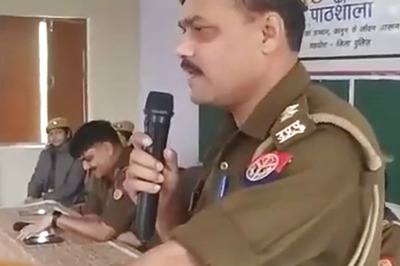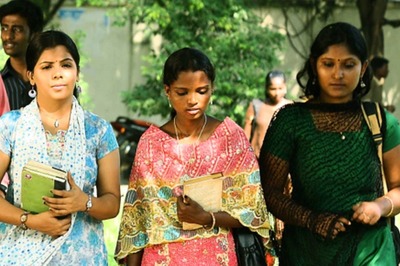
views
window._taboola = window._taboola || [];_taboola.push({mode: 'thumbnails-a', container: 'taboola-below-article-thumbnails', placement: 'Below Article Thumbnails', target_type: 'mix' });Latest News
Chairman of the National Human Rights Commission (NHRC), K G Balakrishnan, on Thursday said that judicial magistrates and other judges in the lower judiciary must not have “any closeness” with police officials. This, he said was an opinion he drew from his long career as a jurist.
Responding to apprehensions raised by representatives of NGOs, who said judicial magistrates were discharging their duties in a “mechanical manner” and in some cases do not even see the wounds sustained by the accused before extending the tenure of police custody, he said magistrates interacting “very personally” with police is not advisable.
“With my long experience in judiciary, I should say magistrates should not have any closeness with the police,” he remarked.
When pointed out by the NGOs that magistrates fail to make sudden inspections of the jails, he said the district judges must visit prisons regularly and added that he was not aware if letter boxes are kept in prisons in the State for prisoners to express their grievances.
“The district judges used to collect the complaints and bring it to the notice of the High Court judges,” he said and added that prison administration was a serious matter the commission was dealing with.
Array of issues
NGO members also raised an array of issues before the commission on Thursday, of which, abolition of manual scavenging and tribal rights in the wake of the order of the Supreme Court banning tourism in tiger reserves topped the chart.
Members said despite a standing ban on manual scavenging, over 14 persons have died in and around Chennai over the last one year while engaged in the menial work.
Despite contempt petitions and actions, activists said sanitary workers were not being given proper safety equipment.
On tribal rights, members said a distinction had to be made between big resorts and poor tribals, who completely depended on minor forest produce for their livelihood. Petty shops and other small businesses situated in the reserves must be allowed to function and further debate on what really constitutes a reserve, with the views of the tribals, should be kick-started, they said.
Commission members also posed several questions, including how serious was issue of obtaining community certificates especially when the decision of the tasildar on the identity of the persons seemed to be the final say. For this, the members responded by alleging that the issuance of community certificates was an issue that bred corruption as a few officers record the caste differently in a deliberate manner and then demand bribes.
The activists also wanted establishment of special courts in all the districts under Section 14 of SC&ST (Prevention of Atrocities) Act and immediate appointment of a chairperson for the State Human Rights Commission, a post which they claimed has been vacant for the past one year.




















Comments
0 comment